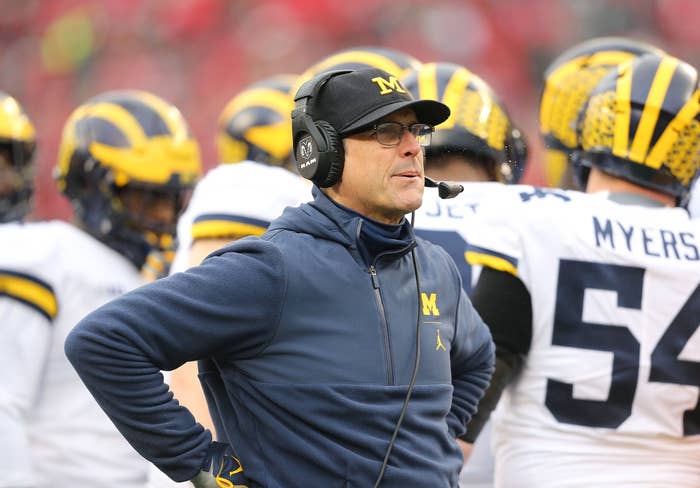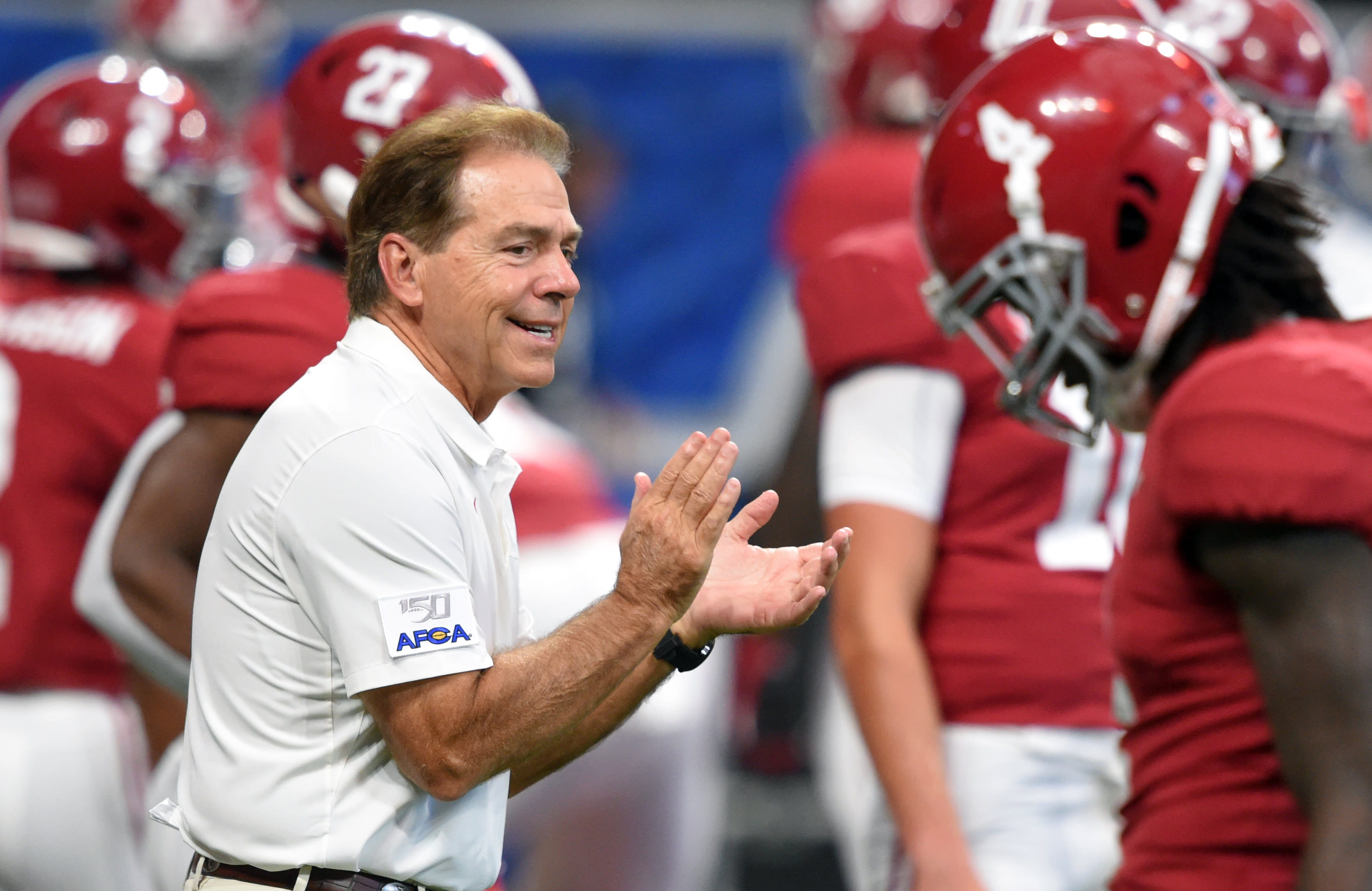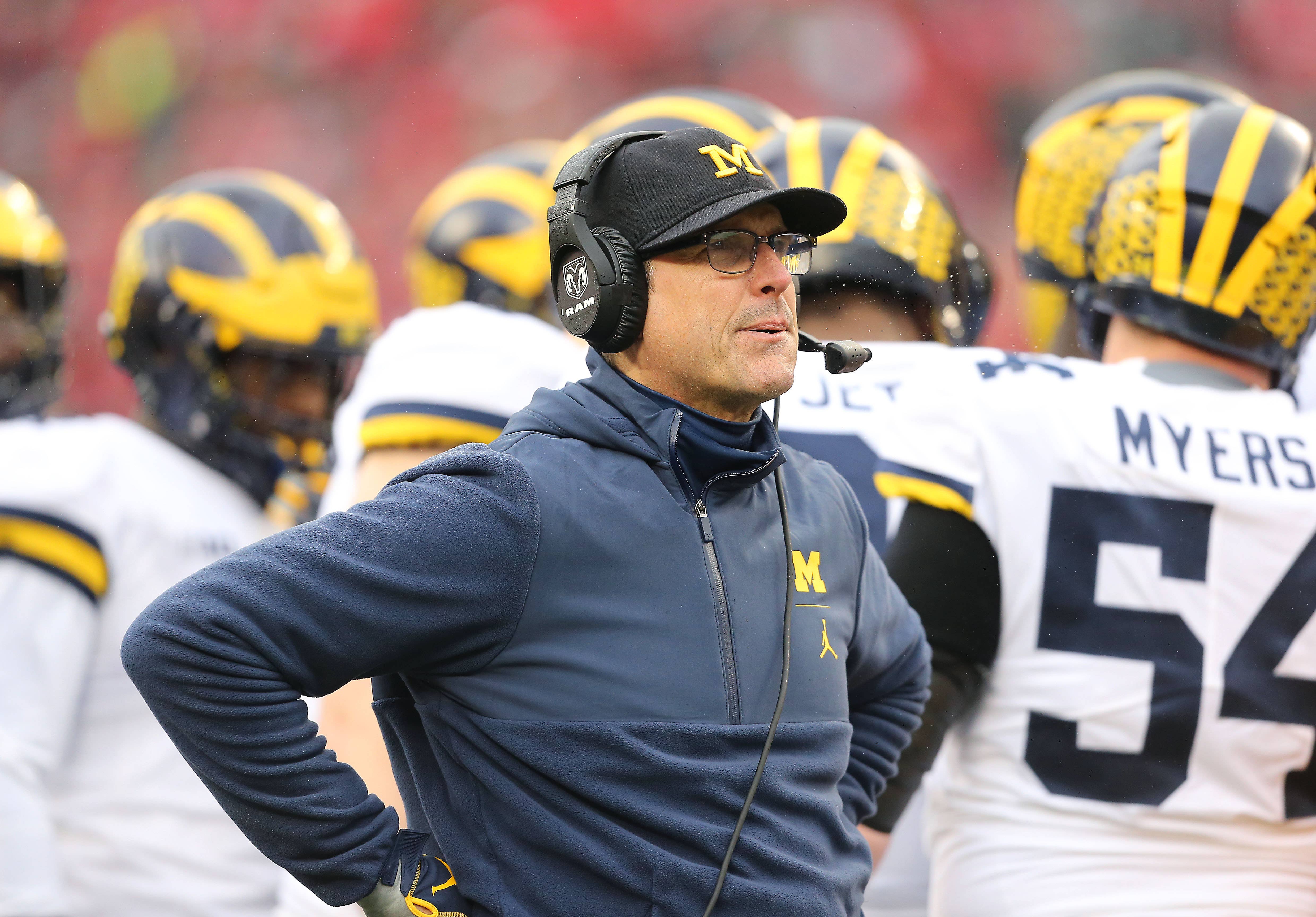
Like just about everything else in this life, the coronavirus is coming for college football. And less than a month before it was originally scheduled to kickoff, the sport’s 2020 season appears to be in serious peril.
Several schools and conferences have already opted to not play in the fall and now there are reports that two Power 5 conferences are on the verge of canceling their campaigns as early as Tuesday.
As expected, the Big 10 went ahead and canceled fall sports, despite the fact that many prominent head coaches and players spoke out against the move. \
We all knew the college football season was going to be unlike any other if it could ever get off the ground, but the sport’s immediate future has been thrown for a major loss over the past 48 hours as its power brokers reckon with the ramifications of trying to play football amidst so many unknowns.
Maybe the idea that we’d have some sort of college football season was a pipe dream to begin with. If some schools aren’t even going to allow regular students to return to campus, how do you justify bringing back football players to play a game that makes billions of dollars for everybody in the sport except the players while there's a pandemic raging? That, of course, opens a Pandora’s box of tough amateurism questions that we’ll quietly tip-toe around for now, but know it's been noted.
Then there’s the whole inability for college football to feature any kind of bubble environment that’s worked so well for the NBA and NHL. Coupled with serious concerns about how schools could keep players, coaches, and staff safe when testing and safety measures would be far from universal and financially debilitating for many, you quickly see the sport is heading straight toward an iceberg. Sure there’s an obvious obstacle or two straight ahead, but there's really a whole mess of concerns just below the surface that college football, with its antiquated power structure and its forever dubious cataloging of the players as student-athletes, will struggle to tackle in ways a professional league never would.
So how’d we get to this point? And can any sort of season be salvaged if high-profile players and coaches rally hard enough to let the sport's power brokers know they really want to play? As with anything virus-related these days, there are way more questions than answers, but here's what we know right now.
How are we on the verge of having no college football?
It’s been quite the comedown from when the season appeared to be full-steam ahead in June when schools started welcoming back players to nearly a full stop of the sport early this week. But the momentum for canceling the 2020 season really picked up over the last handful of days with the pandemic showing few signs of letting up across the majority of the United States and specific schools and conferences taking bold actions.
The ripple started courtesy of UConn when it became the first school in the Football Bowl Subdivision to announce it would not play in the fall. The Huskies transitioned from the AAC to independent this year and when major conferences around the country declared they would only play conference games this season, it decimated UConn’s schedule. So for financial reasons and safety concerns, including strict quarantining regulations put in place in the state of Connecticut for those returning from certain out-of-state locales, the school pulled the plug on the season last week.
The second ripple came from the MAC when it opted to punt on playing its football season until the spring of 2021. MAC teams rely on significant revenue from road games scheduled against teams in the Big Ten and SEC. So when the Power 5 conferences decided to only play conference games, the MAC was put in a very tenuous financial situation.
The third, and most devastating ripple could come down Tuesday. According to numerous reports, the Big Ten is on the verge of officially canceling or postponing its season. The Pac-12 reportedly could also follow suit. Maybe their football seasons get delayed to the spring, but that’s unknown for now. Both major conferences had amended their schedules in the previous weeks in hopes games could be played locally and without major hiccups. But it appears with the pandemic showing few signs of disipating in key states out west and in the Big Ten’s footprint, the conferences appear to be putting player, coaches, and staff safety above the almighty dollar.

That leaves the ACC, Big 12, and SEC to decide if they want to play some sort of season. The pandemic, of course, has grown exponentially in many of the states where schools in those conferences reside. But tradition, money, and hubris could ultimately see those three competing in something resembling a hyper-localized college football season in the south, southwest, and east coast if they aren’t swayed to follow the footsteps of the Pac-12 and Big Ten.
And let’s not forget there has been a steady stream of players, including many with legitimate sights on the NFL, opting not to return to campus amidst safety concerns. Schools have almost universally promised they will honor the scholarships of those who decide they don’t want to play during a pandemic and nobody will lose a year of eligibility. That's great and the least schools could do. But even it there is a season, college football's star power will be diminished.
Amidst all the uncertainty, know that college football’s loss could be the NFL’s gain. Reportedly, the league could look to move some games to Saturdays and even Fridays. There’s actually a federal brodcasting law in place that prevents the NFL from playing Fridays (historically high school’s night) and Saturdays (college football’s big day) that’s buried deep within legislation made into law decades ago. But without high school ball (since the season of millions will surely be postponed) and the college game, ESPN’s Adam Schefter reported Monday the league could look to move many of its games to days of the week they’d otherwise never play on in September, October, and November.
What about the players who want to play?
While university presidents, athletic directors, and conference executives will ultimately decide if there’s any kind of college football season, many players are declaring their desire to play. Clemson quarterback Trevor Lawrence, widely regarded to be the No. 1 pick in next year’s NFL Draft, is the most high-profile player to voice his desire to play this fall. He took to Twitter Sunday night and helped get the #WeWantToPlay and #WeAreUnited hashtags trending.
Most interestingly, this could be the start of players organizing in the most meaningful way we’ve seen as Lawrence and other stars at big-time universities, like Ohio State QB Justin Fields, reportedly talked over Zoom to discuss their options. They are expressing “universal support” for some sort of players’ coalition or association. Should something like that materialize, similar in theory to what’s present in professional leagues, it would obviously have major ramifications on the NCAA’s student-athlete/amateurism dynamic. But only a good ol’ boy in the college football power structure, desperate to keep his pockets lined and continue wielding power, would advocate that the players don’t deserve more rights or more of a say in the discussions of what goes down in their sport.
As far as the #WeWantToPlay aspect of the online movement, it’s already garnered support from Arkansas athletic director Hunter Yuracheck.
The most high-profile name to advocate for a season is Michigan coach Jim Harbaugh. While stressing the seriousness of the virus, Harbaugh outlined in a full-page release Monday all the ways Michigan has been able to keep its players, coaches, and staff safe, hoping it can serve as an example of how the season could be salvaged under the most unique of circumstances.
Statement from Jim Harbaugh. pic.twitter.com/CftMW7d5lC
So what about bowl games and the College Football Playoff?
¯\_(ツ)_/¯
There are too many bowl games, but that’s a topic for another day. Regardless, it’s only a matter of time with entire conferences now opting out of the season that we’ll probably start to see cancellations while other games could wait for the sport to officially shut down before bowing out. Since many of the bowl games are massive revenue generators for the fat cat executives who run them, expect them to hold out hope they can be played. But for numerous reasons, the bowl season will likely be a casualty of the coronavirus.
As for a proper College Football Playoff, when it’s a partnership between the conferences and conferences are on the verge of opting out of playing, it would appear a proper champion will not be crowned for the 2020 season. But no official word is reportedly imminent right now.
What role does the NCAA play in this?
None really. When it comes to the big boys, the NCAA doesn’t have much say since the governing body does not oversee the Football Bowl Subdivision’s championship or its postseason. So despite Division II and Division III already opting to 86 its fall sports in 2020, the NCAA has allowed individual institutions and conferences in Division I to figure out if they want to have fall sports—most especially revenue-generating football. As far as we’re concerned, the less NCAA involvement in things—with its hypocritical messaging, antiquated legislation, and a lack of real leadership—the better.

